How to Choose the Best Automatic Car Wash Parts for Optimal Performance
In the rapidly evolving world of car wash technology, selecting the right Automatic Car Wash Parts is crucial for maximizing operational efficiency and customer satisfaction. According to industry expert John Smith, a seasoned engineer with over 15 years of experience in the automatic car wash sector, "High-quality parts not only enhance the performance of your system but also ensure longer operational lifespans and reduced maintenance costs." This insight underscores the need for car wash operators to carefully consider the components they integrate into their systems.
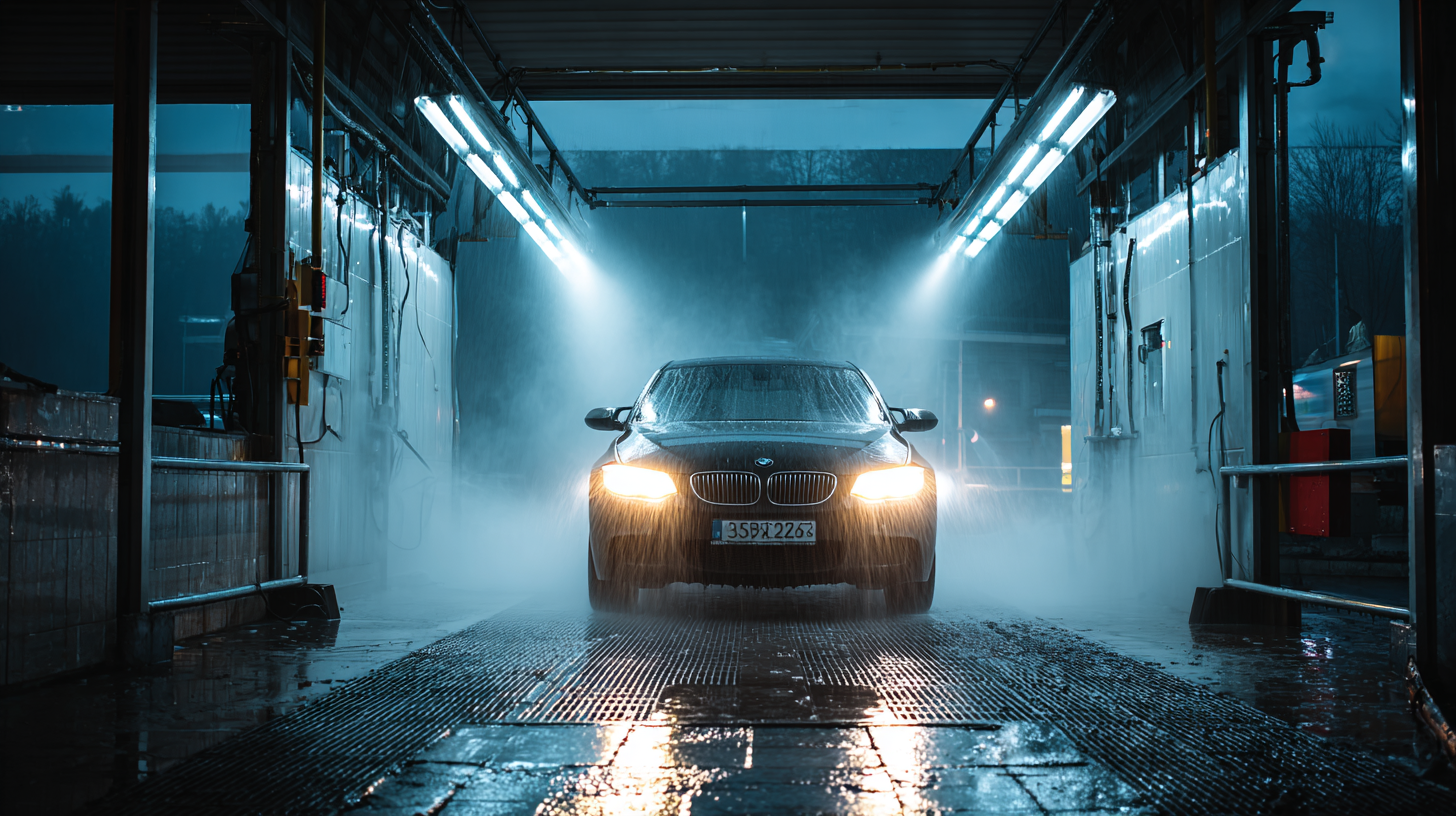
As automatic car wash systems become increasingly sophisticated, the variety of parts available can be overwhelming. From brushes and pumps to control systems and sensors, each piece plays a vital role in delivering a seamless washing experience. Operators must assess both the compatibility and performance of these parts to ensure their car wash can meet the demands of a high-traffic environment. Investing in the best Automatic Car Wash Parts is not merely about keeping up with technology; it's about setting a standard for quality that customers have come to expect.
Understanding Different Types of Automatic Car Wash Parts for Enhanced Performance
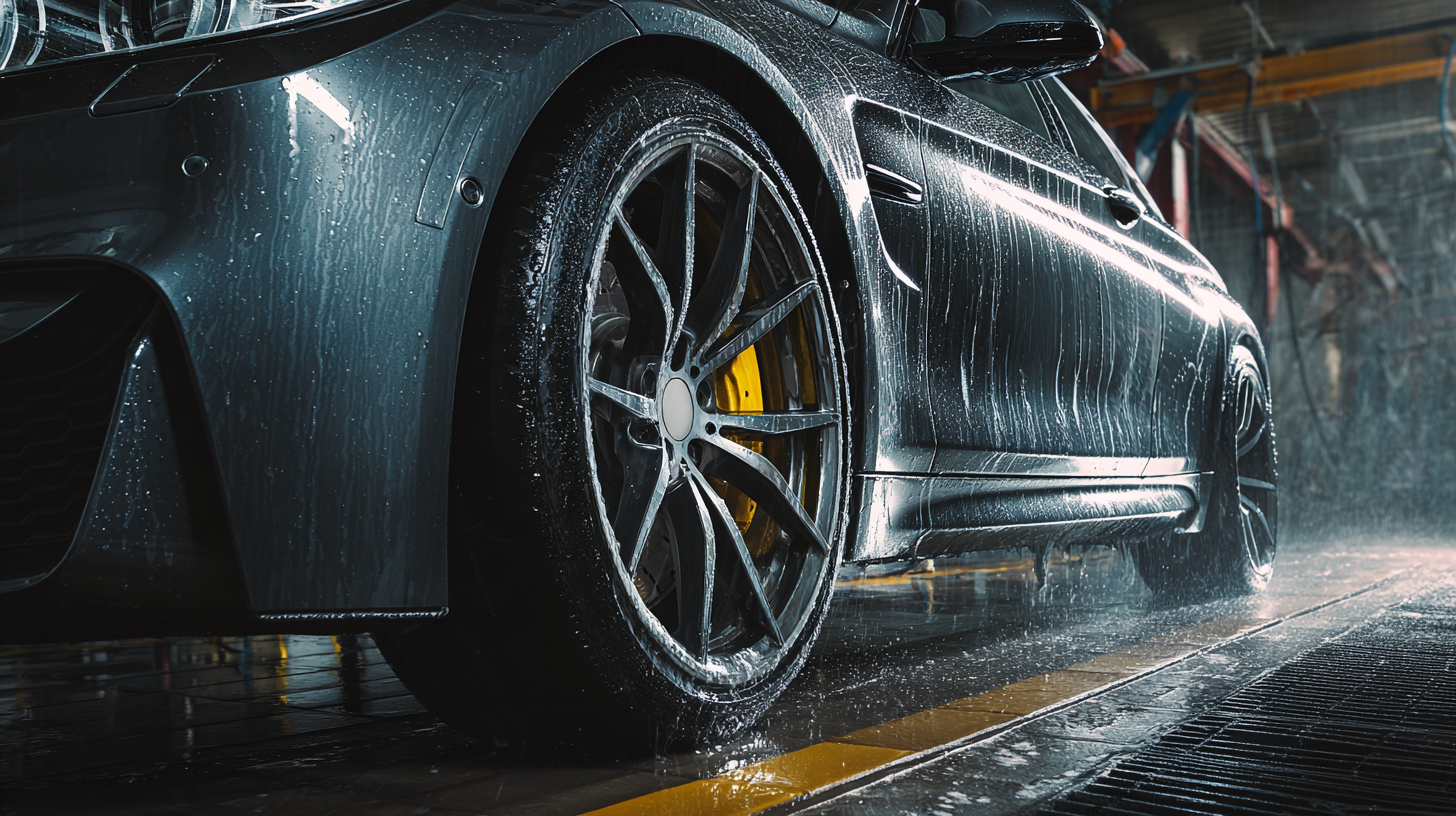 When selecting automatic car wash parts, it's essential to understand the various components that contribute to optimal performance. Key parts include the washing brushes, nozzles, and drying systems. Washing brushes come in different materials; soft foam brushes are ideal for gentle cleaning to avoid scratches, while bristle brushes can tackle tougher grime. The choice of brushes can significantly impact how well the vehicle’s surface is cleaned without causing damage.
When selecting automatic car wash parts, it's essential to understand the various components that contribute to optimal performance. Key parts include the washing brushes, nozzles, and drying systems. Washing brushes come in different materials; soft foam brushes are ideal for gentle cleaning to avoid scratches, while bristle brushes can tackle tougher grime. The choice of brushes can significantly impact how well the vehicle’s surface is cleaned without causing damage.
Nozzles play a crucial role in water and detergent application. Different types of nozzles, such as high-pressure or foam-generating ones, can create varying washing experiences. High-pressure nozzles are effective for removing dirt and debris, while foam nozzles provide a thick layer of detergent that enhances cleaning. Additionally, an efficient drying system, which includes blowers or air knives, is vital for preventing water spots and streaks on the vehicle's surface. Choosing the right combination of parts tailored to the specific washing needs will ensure an efficient and high-quality wash.
Key Features to Look for in Automatic Car Wash Equipment
When selecting the best automatic car wash parts, it’s essential to prioritize key features that enhance performance and ensure customer satisfaction. One important factor to consider is the technology used in the wash system—opt for models that incorporate touchless or soft-touch options that can effectively clean a vehicle without causing damage. These advanced systems not only improve wash quality but also appeal to customers who are increasingly concerned about the safety of their vehicle finishes.
Another crucial aspect is the convenience and efficiency of the equipment. Look for automatic car wash components that offer quick service times and streamline the washing process, which is vital in high-traffic areas like convenience stores. Additionally, payment systems should be versatile, providing customers with various options such as subscriptions and mobile payment solutions, which are becoming increasingly popular in the car wash sector. Considering these key features will help you choose the best equipment that maximizes both operational efficiency and customer satisfaction.
How to Choose the Best Automatic Car Wash Parts for Optimal Performance
| Feature | Importance | Recommended Specification |
|---|---|---|
| Durability | Ensures longevity and reduces maintenance costs | Materials like stainless steel or heavy-duty plastic |
| Water Efficiency | Minimizes water waste and complies with regulations | Systems using less than 5 gallons per wash |
| Cleaning Technology | Enhances wash quality and efficiency | Touchless or brushless systems |
| Ease of Use | Streamlines operation and reduces training time | Intuitive controls and automated settings |
| Cost Efficiency | Affects profit margins and operating costs | Initial investment under $100,000 for robust systems |
| Safety Features | Protects users and vehicles during operation | Emergency stop buttons and safety sensors |
Comparative Analysis of Material Durability in Car Wash Parts
When selecting parts for an automatic car wash, understanding the comparative durability of materials is crucial for ensuring optimal performance and cost-effectiveness. According to a recent report by the International Carwash Association, robust components made from high-density polyethylene (HDPE) demonstrated a remarkable lifespan of over 10,000 washes, significantly outpacing traditional materials like steel and aluminum, which typically succumb to corrosion and wear after 7,000 washes. This longevity not only enhances operational efficiency but also reduces the frequency of replacements, leading to higher profit margins.
Moreover, advancements in ceramic coatings have shown promise in improving the resilience of wash components. A study published in the Journal of Surface Technology reported that ceramic-coated parts can last up to 50% longer than non-coated variants, even under harsh chemical exposure commonly found in car wash environments. The ability of these materials to withstand extreme conditions while maintaining performance can be a game changer for business owners aiming for sustainable operations. Therefore, investing in car wash parts made from high-durability materials can significantly impact the overall performance and reliability of automatic car wash systems.
Material Durability Comparison in Automatic Car Wash Parts
This chart illustrates the durability comparison of various materials used in automatic car wash parts, focusing on their lifespan in terms of cycles before wear and tear occurs.
Essential Maintenance Tips for Longevity of Automatic Car Wash Systems
Maintaining automatic car wash systems is crucial for ensuring their longevity and optimal performance. Regular maintenance not only extends the life of the equipment but also boosts efficiency, which is vital in today’s competitive car wash industry. According to a report by the International Carwash Association, properly maintained car wash systems can see a 10-15% increase in operational efficiency. This can significantly impact profitability, especially considering that a well-maintained wash system is less prone to breakdowns and costly repairs.
Essential maintenance tips include routine inspections of all moving parts, such as brushes, pumps, and conveyor belts, to identify wear and tear before they lead to major issues. Lubrication should be frequent, with a recommendation to service greasing points every 200 hours of operation. Moreover, monitoring chemical delivery systems and ensuring correct mixing ratios can enhance wash quality while reducing chemical waste. Reports suggest that optimized chemical use can decrease costs by up to 20%, leading to more sustainable operations. Following a structured maintenance schedule not only prolongs equipment life but also fosters customer satisfaction through consistent wash results.
Trends and Innovations in Car Wash Technology for 2025
As we approach 2025, the car wash industry is poised to witness significant advancements driven by emerging technologies and innovative solutions. One of the most notable trends is the integration of smart technology, including IoT (Internet of Things) applications. These systems allow for real-time monitoring and management of car wash operations, enabling businesses to optimize water usage, track performance metrics, and enhance customer experiences through mobile apps that allow users to schedule appointments and receive notifications.
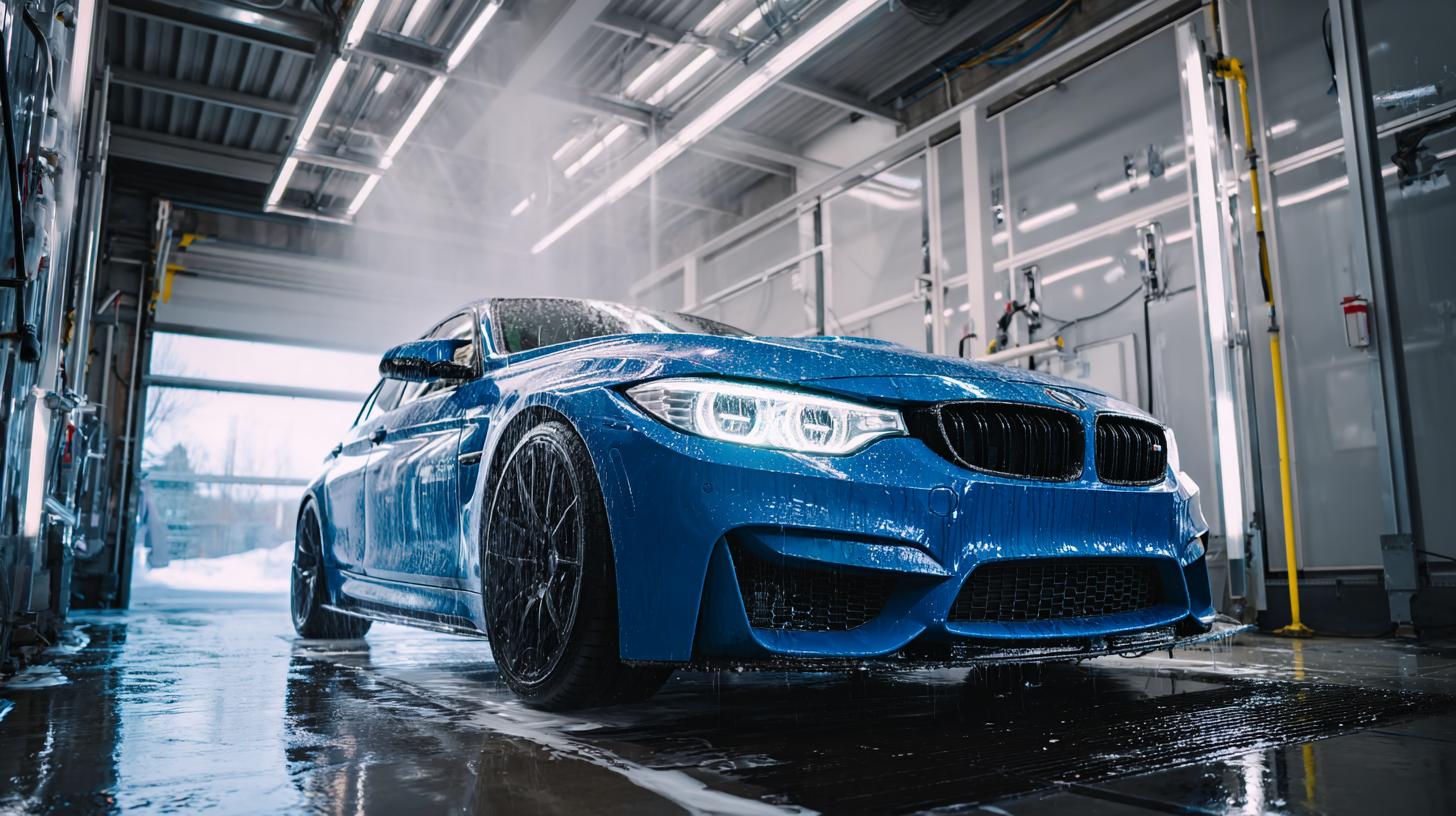 Furthermore, sustainability remains a primary focus within the industry. Car wash innovations are increasingly leaning towards eco-friendly practices. Many businesses are adopting water recycling systems and biodegradable cleaning agents, reducing their ecological footprint while meeting consumer demand for environmentally responsible services. Automation has also evolved, with robotic systems that streamline the washing process, ensuring thorough and efficient service while minimizing labor costs.
Furthermore, sustainability remains a primary focus within the industry. Car wash innovations are increasingly leaning towards eco-friendly practices. Many businesses are adopting water recycling systems and biodegradable cleaning agents, reducing their ecological footprint while meeting consumer demand for environmentally responsible services. Automation has also evolved, with robotic systems that streamline the washing process, ensuring thorough and efficient service while minimizing labor costs.
These trends signal a transformative shift in car wash technology, focusing on performance, efficiency, and sustainability, preparing the industry for a future that aligns with modern consumer values.
Related Posts
-
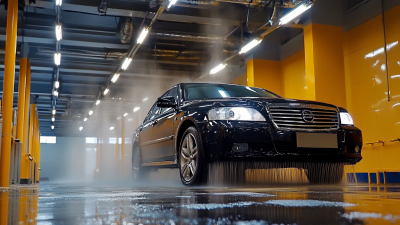
Unmatched Quality from China's Leading Factory for the Best Auto Car Wash Machine
-
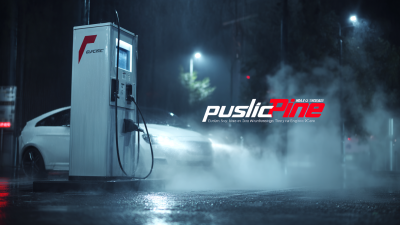
7 Reasons the Best Electric Car Wash Machine is Revolutionizing Auto Care
-

Essential Guide to Choosing the Best Automatic Home Car Wash System for Your Needs
-

Ultimate Guide to Choosing the Best Automatic Home Car Wash System for Your Needs
-
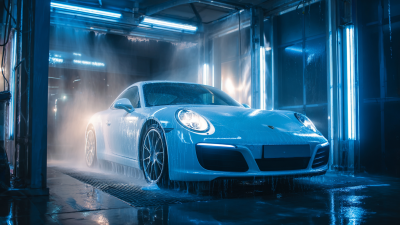
Unlocking Success with Best Touchless Car Wash Machine 7 Key Industries Transforming Vehicle Cleaning
-

7 Key Advantages of Using an Electric Car Wash Machine for Your Business